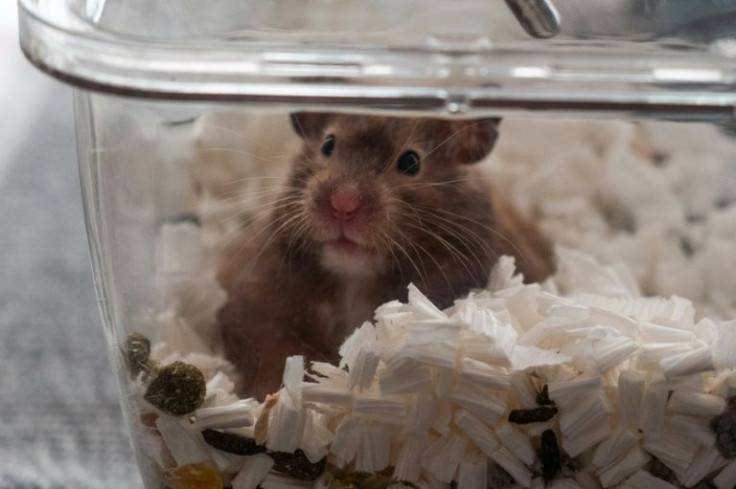Hamsters Can Infect Humans With COVID-19, HK Outbreak Came From Rodents: Study
KEY POINTS
- Hamsters can transmit COVID-19 to humans, researchers revealed in a study
- Humans and farmed mink were the only mammals known to spread the coronavirus to people before the discovery
- Despite the findings, people are still much more likely to get infected by each other than by their pets
Pet hamsters can get infected with COVID-19 and pass the virus to humans, a study published in late January said, possibly providing an explanation to a recent outbreak in Hong Kong.
The study is the first to confirm that the rodents can become infected with the novel coronavirus outside of a laboratory, and they can pass the virus to people and other hamsters, Nature reported.
Before the discovery, hamsters were already susceptible to catching COVID-19, but there was no evidence that they could pass it to humans, per Live Science.
Additionally, no previous documentation showed that mammals aside from humans and farmed mink could spread COVID-19 to people, the study, which has yet to be peer-reviewed, said.
Despite the findings, humans are still much more likely to get infected by each other than by their pets, noted one of the study's authors, virologist Leo Poon.
The research reportedly began after a 23-year-old woman working at the Little Boss pet shop in Hong Kong's Causeway Bay tested positive for the delta variant of COVID-19 in January — the first time the strain was detected in the city since October 2021.
Aside from the pet shop worker, a woman who visited the store and her family caught the coronavirus. The number of infected has since gone up to around 50, a report by The Guardian said.
Officials did not find evidence of COVID-19 infection among any of the shop's rabbits, guinea pigs, chinchillas, mice, or dwarf hamsters that they screened, but a total of 15 Syrian hamsters tested positive for the virus.
It was determined that several hamsters from Little Boss were infected with the coronavirus in November 2021, before they were transported to Hong Kong. The pets, which the store had nearly 2,000 of, arrived in the city on Dec. 22 and Jan. 7 from the Netherlands.
The discovery of COVID-19 in some rodents ultimately led to the culling of more than 2,200 hamsters in Hong Kong.
Experts believed there was a possibility that the hamsters got infected after arriving in the city.
"There are so many people handling hamsters during the process of them being transported," Arinjay Banerjee, a virologist at the University of Saskatchewan in Saskatoon, Canada, told Nature.

© Copyright IBTimes 2024. All rights reserved.




















